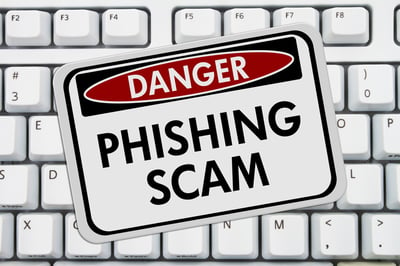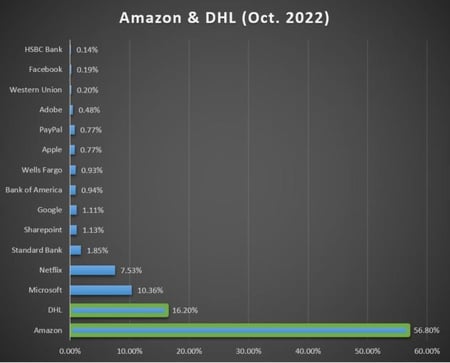 New analysis of spam and malicious emails show the all but nonexistence of COVID-esque impersonation of government and pharm entities in lieu of international brands.
New analysis of spam and malicious emails show the all but nonexistence of COVID-esque impersonation of government and pharm entities in lieu of international brands.
It just makes sense; if you’re in the business of getting people’s attention via email, you use whatever theming is going to evoke the greatest emotion on the part of the recipient to increase your chances of them clicking on your malicious content. In previous years, it was obvious that COVID-related messages – particularly those about assistance from the government in various fashions – was the way to go.
But just-released data from Bitdefender shows from May to October this year, phishing attacks have shifted to impersonate international brands, with Amazon as the overwhelming leader by nearly a margin of two to one:

Source: Bitdefender
And it just makes sense, as in October, the world was beginning to place its focus looking towards the holiday season, where obtaining products from Amazon and (internationally) shipping via DHL are much more prevalent and elevated in importance to the consumer. I can only imagine what this same chart will look like for this December when it comes out.
And while the retail industry is well aware that they are the target this year of plenty of credential harvesting scams, corporate users need to be aware of the possibility that they will be the next target of a scam intent on stealing their Microsoft 365 credentials, or infecting their work computer as part of an initial access scam. The needed level of vigilance can only come through continual Security Awareness Training that reinforces the need to always be on guard – especially during the holidays.
 Here's how it works:
Here's how it works:




